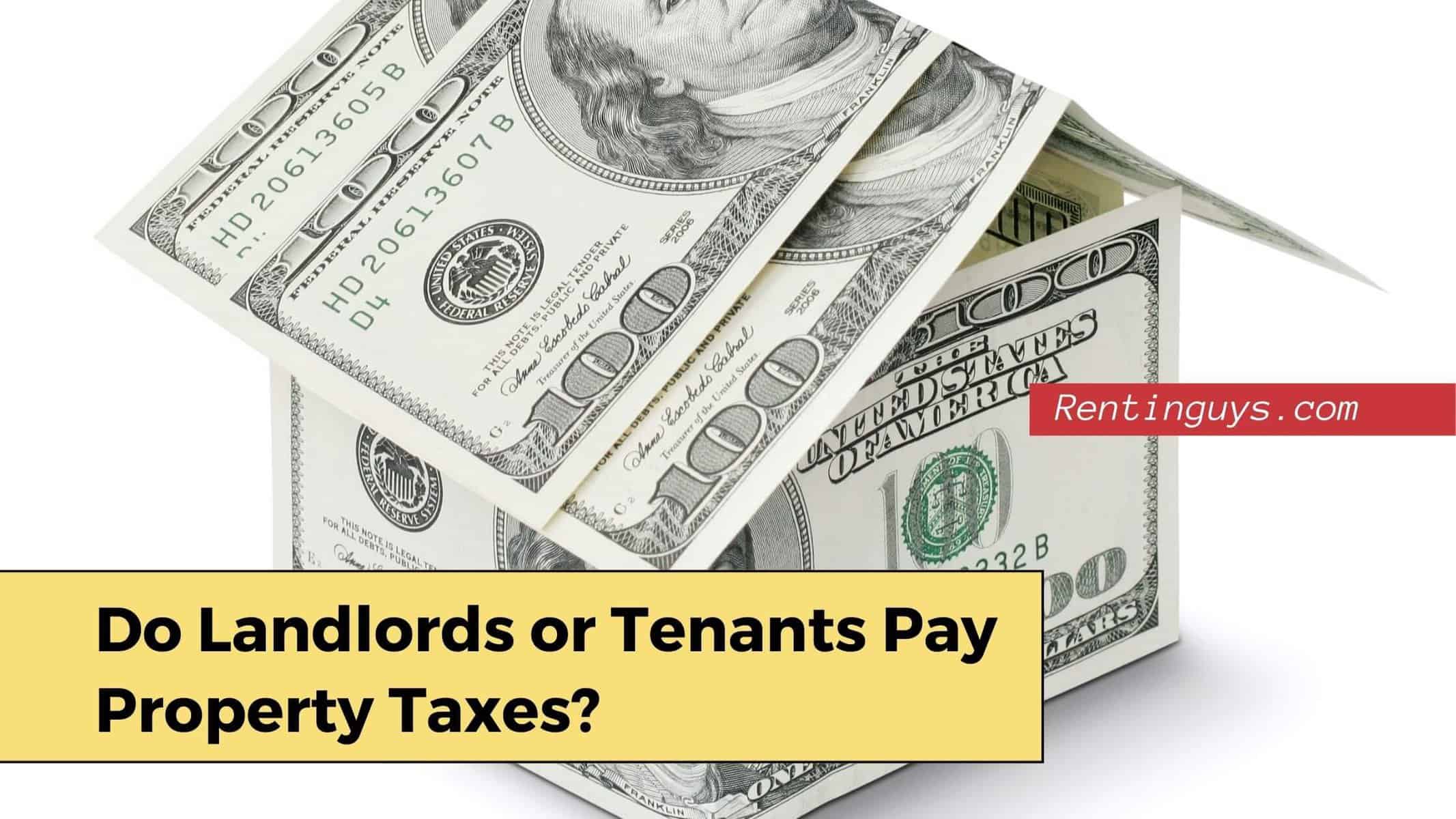Homeowners have to incur numerous expenses such as mortgages, maintenance costs, property taxes, insurance, legal fees, etc.
Property tax is one of the major expenses incurred by homeowners. New landlords and tenants have a lot of confusion about property tax issues.
Here are the answers to some of the frequently asked questions on property taxes to clear the confusion on what is property tax, how it is levied, and who is responsible to pay the property taxes.
What is a Property Tax?
Property tax is collected by the local governments. The tax is levied on the properties owned by individuals and other legal entities.
Property tax is calculated based on the fair market value of the property. Most municipalities carry out yearly assessments of property taxes to factor in the increase or decrease in the property value.
The property tax is levied on all the real property including land, structures, and fixed buildings. The definition of real property is defined by the government and varies from state to state.
For example, while some municipalities levy property tax on real property, others collect taxes on tangible personal properties like cars, paintings, etc.
The amount collected through property tax is used for various tasks taken up by the local governing body such as water and sewer improvements, law enforcement, education, public works, and other community services.
The amount of property tax is calculated by multiplying the prevailing tax rate by the market value of the property. Property tax rates vary based on the location of the property.
For example, the rate will be higher in the central districts than in the suburbs.
Who should pay property tax, tenant or landlord?
The landlord has to pay property taxes. However, If the rental lease states that the tenant has to pay property taxes, then the tenant will be responsible for the payment.
Most states do not allow the landlords to pass on the property tax payments to the tenants.
The amount paid as property taxes can be deducted from the federal income tax of the property owner if the property is for personal use.
However, taxes paid on rental or commercial properties are not eligible for deductions.
If your landlord doesn’t pay property taxes, Does it affect you as a tenant in any way?
Property taxes are to be paid by the property owner. If the landlord does not pay the property taxes on time, it does not affect the tenant in any way.
However, when the municipality takes action to recover the taxes and places a lien on the house, you may get a new landlord.
The state and local laws vary on whether the lease agreement with the current landlord is to be honored by the municipality and the new landlord. In some states, the municipality, as well as the new homeowner, must honor the lease.
The only risk you may face is that if the law allows, the new landlord may ask you to vacate the property by giving a 30-day notice or in the worst case a 3-day notice.
Do Landlords include property taxes as part of their rent charges?
Landlords rent out their properties to earn income. They factor in all expenses such as the mortgage interest, property tax, insurance, HOA fees, etc. when calculating the rental price for the house or apartment. Though the tenant sees only a single figure, all the expenses are already included in the rent.
So when the property taxes increase, the rent automatically goes up.
Do apartments or homeowners and renters pay property taxes?
Property tax is levied on real or tangible personal property and is to be paid by the property owner.
Renters are not required to pay property taxes unless it is specifically mentioned in the lease document. When you rent an apartment, the apartment owner is responsible to pay the property taxes.
Do commercial or business tenants pay property taxes?
There are two types of real estate leases – the gross lease and the net lease.
In the gross lease, the landlord pays all the expenses of the property including property taxes, insurance, and common area maintenance. These expenses are factored into the rent and the tenant has to only pay the rent amount.
In the case of net leases, the property taxes are paid by the tenants. If the landlord has multiple tenancies, the tax amount is apportioned to all the tenants based on the space occupied.
In net commercial leases, the landlord pays property taxes only when the property is vacant.
The total rent of commercial property in a gross lease will be higher than in a net lease as the landlord includes all the additional payments in the rent amount.
In a net lease, the base rent is lower as the tenant pays the taxes, and other expenses based on the type of the net lease.
Do renters pay property tax in Texas?
Unless you sign a net lease, the renters do not have to pay property taxes in Texas. Even though the landlord is liable for the property taxes, the expenses are always passed on to the tenant by including them in the rent.
Do renters pay property tax in California?
The renters do not pay property taxes in California. Property taxes are always charged on real and tangible personal property and are to be paid by the property owner.
Though your owner is responsible to pay the tax, he will factor in the tax expenses in the rent calculation and pass it down to you. However, if you have a net lease, you will be liable to pay the property tax.
Though you are a renter, it is crucial to pay attention to the property taxes as landlords pass down taxes and other expenses to the tenants by including them in the rent.
If the property taxes in a locality are higher, the rents also tend to be higher.
It is the responsibility of a landlord to pay the taxes to the municipality, so if your landlord does not pay taxes on time, you need not worry.
However, you can talk to the landlord and convince him to pay taxes on time to avoid late fees and penalties from the municipality.



